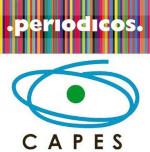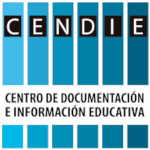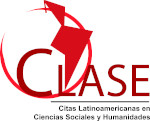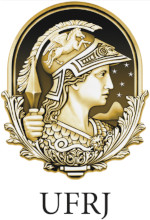Team Development Program (Prode): an evaluative research of National Service for Commercial Apprenticeship (Senac) – Ceará Regional Department
DOI:
https://doi.org/10.26849/bts.v45i3.794Keywords:
Team development, Educational assessment, Program assessmentAbstract
This article presents an evaluative experience of the Team Development Program with Senac teachers in the state of Ceará. Conducted by researchers and experts, it adopted the four-pole methodology of De Bruyne, Herman & Schoutheete, with the thinking of Dewey, Kilpatrick & Schön as its epistemological pole. The theoretical field explored the development of teams and the evaluation of educational programs. A morphological axis demonstrated the Team Development Program (Prode) model. And, in the technical pole, the results of the evaluation were demonstrated from the perception of the facilitators and the teachers.
Downloads
References
BOOG, Gustavo G. Manual de treinamento e desenvolvimento. São Paulo: Makron Books, 2000.
BONNIOL, Jean-Jacques; VIAL, Michel. Modelos de avaliação: textos fundamentais. Porto Alegre: Artmed, 2001.
DE BRUYNE, P.; HERMAN, J.; SCHOUTHEETE, M. Dinâmica da pesquisa em ciências: os polos da prática metodológica. Rio de Janeiro: F. Alves, 1977.
DEWEY, John. Experiência e educação. Tradução de Anísio Teixeira. São Paulo: Editora Nacional, 1971.
HAYDT, Regina Celia Cazaux. Curso de didática geral. São Paulo: Ática, 1997.
INSTITUTO DE AVALIAÇÃO, GESTÃO & EDUCAÇÃO. Descrição da metodologia Prode – Programa de Desenvolvimento de Equipes. Fortaleza: [s. n.], 2009.
KILPATRICK, William Heard. Educação para uma civilização em mudança. Tradução de Noemy Rudolfer. 16. ed. São Paulo: Melhoramentos, 1978.
KNOWLES, Malcolm S. The modern practice of adult education: from pedagogy to andragogy. Cambridge: Adult Education, 1980.
KNOWLES, Malcolm. S.; HOLTON, Elwood. F.; SWANSON, Richard A. Aprendizagem de resultados: uma abordagem prática para aumentar a efetividade da educação corporativa. Rio de Janeiro: Elsevier, 2009.
LIMA, M. A. M. Avaliação de programas educacionais em organizações: contrato de avaliação e indicadores de aproveitamento. Fortaleza: UFC, 2005.
LIMA, M. A. M. Autoavaliação e desenvolvimento institucional na educação superior: projeto aplicado em cursos de administração. Fortaleza: UFC, 2008.
MOSCOVICI, Fela. Competência interpessoal no desenvolvimento de gerentes. Revista Administração de Empresas. São Paulo, v. 21, n. 2, p. 17-25, abr./jun. 1981.
MOSCOVICI, Fela. Equipes que dão certo: a multiplicação do talento humano. 3. ed. Rio de Janeiro, José Olympio, 1996.
RICHE, George Ayoub; ALTO, Ricardo Monte. As organizações que aprendem, segundo Peter Senge: “a quinta disciplina”. Cadernos Discentes COPPEAD, Rio de Janeiro, n. 9, p. 36-55, 2001.
ROBBINS, Harvey; FINLEY, Michael. Por que as equipes não funcionam: o que deu certo e como torná-las criativas e eficientes. Tradução de Balzán Tecnologia e Linguística. Rio de Janeiro: Campus, 1997.
SALOMÃO, M. A. Desenvolvimento de equipes. In: BOOG, Gustavo G. Manual de treinamento e desenvolvimento. São Paulo: Makron Books, 2000. SENAC. Serviço Nacional de Aprendizagem Comercial. Disponível em: http://www.senac.br. Acesso em: 7 jan. 2019.
SCHÖN, Donald. A. Educando o profissional reflexivo: um novo design para o ensino e a aprendizagem. Porto Alegre: Artmed, 2000.
SCHUTZ, Will. The human element: self-esteem, productivity and the bottom line.[San Francisco: Jossey Bass], 1994. (Jossey Bass Business and Management Series).
WORTHEN, B. R.; SANDERS, J. R.; FITZPATRICK, J. L. Avaliação de programas: concepções e práticas. São Paulo: Editora Gente, 2004.
Downloads
How to Cite
Issue
Section
License
Commitment to the Provision of Creative Commons Licensing
The Senac Journal of Education and Work is per the BY NC license, free of charge and with no commercial purpose.
In submitting their work for evaluation, the authors undertake to make their work available through the Creative Commons-BY NC license at the website <https://br.creativecommons.org>, thus dispensing with the need for signing any other document or contract with Senac to regulate the availability of their works in the Senac Journal of Education and Work.
The author (s) further declare that they recognize the Senac Journal of Education and Work as an open access journal, whose Policies and Authors Guidelines are available to know on its official website, namely - www.bts .senac.br - and that they can be modified at any time, and immediately any new condition published online.
The names and addresses informed in this journal will be used exclusively for the services provided by this publication and are not available for other purposes or to third parties.




















